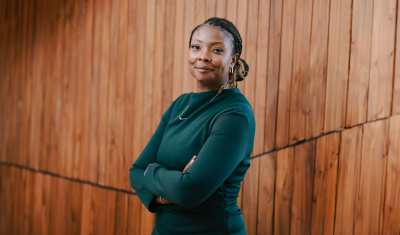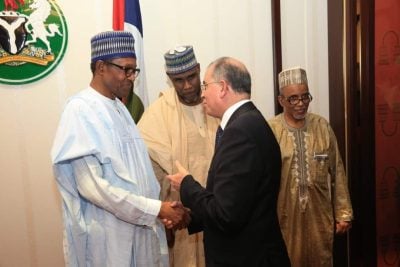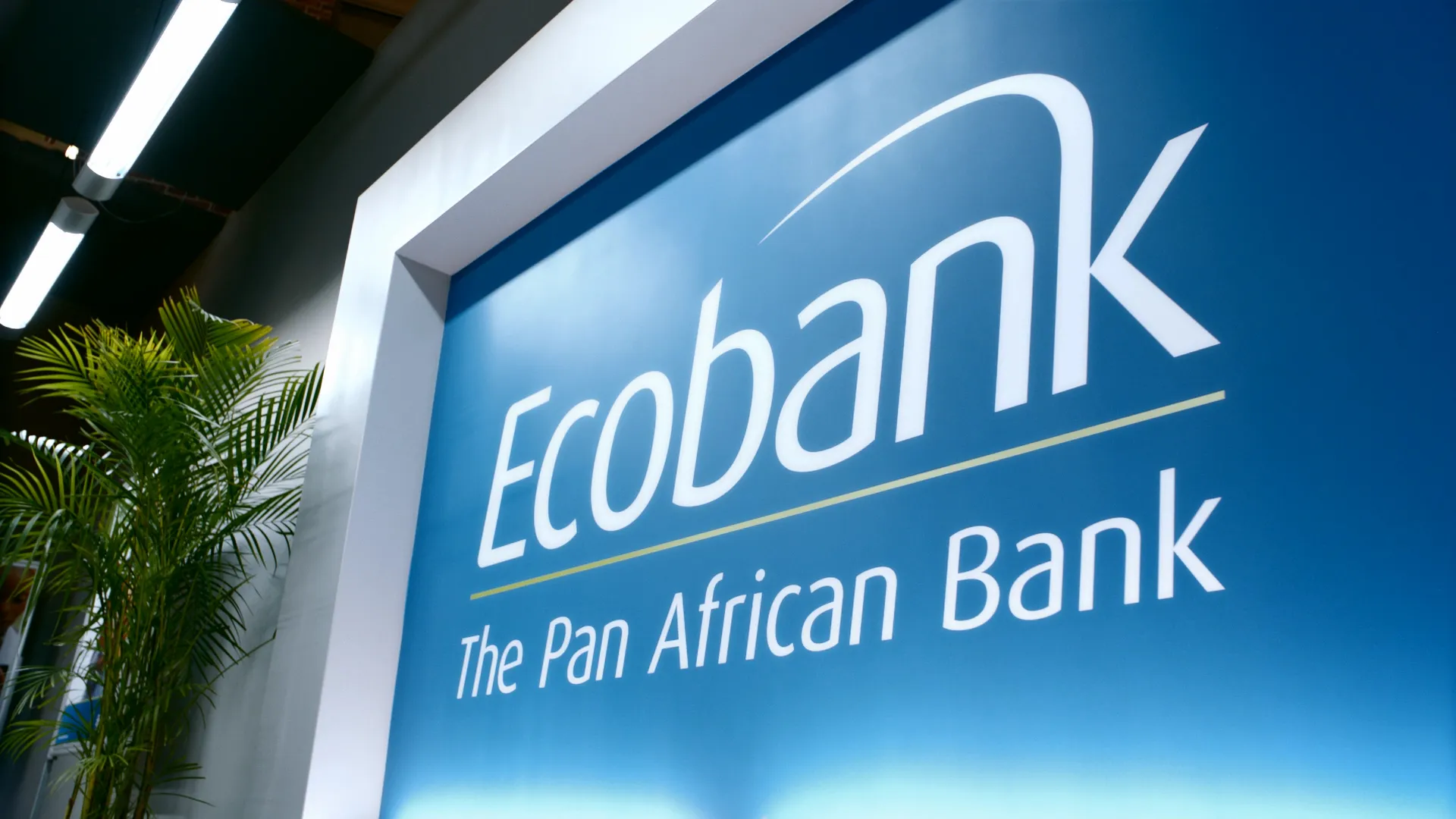
Speak to any bank CEO on the continent and he or she will tell you that SMEs are the asset class where they see the most potential growth. Nonetheless, despite these assertions, SMEs are still underserved, and many will tell you that access to finance is still their biggest constraint.
The SME paradox – that they are drivers of growth and employment and thus a critical actor in a well-functioning economy and yet receive the least funding and assistance – means that it requires a complete rethink.
Jules Ngankam, Group CEO at the African Guarantee Fund (AGF), looks at the glass as half-full. The financing gap for SMEs, as high as $300bn, is stimulating interesting solutions that can be scaled up, he tells us.
These can be extended successfully to particular segments, from gender-based finance to lending in the agriculture sector. It is this track record, he explains, that will help unlock many more billions for this asset class.
Partnerships are key to this initiative. The AGF itself does not lend to businesses. Rather, it acts as a guarantor, allowing financial institutions to lend to women-led businesses with confidence.
The African Guarantee Fund is now in its early teens. Founded in 2011 by the African Development Bank (AfDB), alongside the Danish International Development Agency (DANIDA) and Spanish Agency for International Development Cooperation (AECID), AGF was set up with the express mission of supporting SME growth on the continent.
Other partners have since joined, including Agence Française de Dévelopment (AFD), Nordic Development Fund (NDF), Investment Fund for Developing Countries (IFU), the German Development Bank (KfW) and West African Development Bank (BOAD).
Further support has come from French Agency for Private Sector (PROPARCO), Global Affairs Canada (GAC) and USAID’s West Africa Trade & Investment Hub (WATIH). And more announcements are due – most likely in the form of new shareholders and new initiatives. Lending to women-run enterprises it appears, will be central to future growth.
Implementing AFAWA
While the financing challenge applies to all SMEs, women-led businesses have particular challenges. Lenders often see them as riskier propositions and hence are more hesitant to advance loans to them and when they do, may charge higher interest rates.
Women are also less likely to have the collateral or other guarantees that lenders demand – title deeds, for example, generally belong to men. Financial institutions themselves may lack the capacity to fully appreciate the particular challenges that women-led businesses have. All of these issues are against the backdrop of legal and regulatory systems that are often insalubrious for female entrepreneurs in the first place.
For women entrepreneurs to thrive, they need targeted solutions that respond to their unique challenges. According to the 2017 Global Entrepreneurship Monitor, women lead 25.9% of businesses in sub-Saharan Africa, the highest percentage of any region in the world. Women are also more reliable and much more likely to invest more of their earnings into the home than men.
This background has spurred the AfDB and the AGF as well as a number of partners to initiate the Affirmative Finance Action for Women in Africa (AFAWA), a targeted intervention to leverage more finance for women-led businesses.
It seeks to draw on the AfDB’s considerable clout to transform lending on the continent. Armed with a $500m risk-sharing instrument that is managed by AGF, AFAWA aims to unlock $3bn in financing for women-led businesses in Africa.
Institutions are encouraged to join the initiative with a rating system that will also include preferential terms in dealing with the AfDB.
Apart from financing, AFAWA also offers technical support for women entrepreneurs, building their capacity and boosting productivity. It also involves a push to reform the legal and regulatory systems that hold African women entrepreneurs back, through engagement and advocacy.
After a successful roadshow that kicked off in 2022 taking the team on a proselytising mission through Tanzania, Angola, the Democratic Republic of Congo, Ghana, Djibouti, Congo and Mozambique, Jules Ngankam is convinced that the message has sunk in.
The AFAWA Finance Series and breakfast events allowed the team to convene stakeholders, explain what they are trying to do and build critical relationships and partnerships.
Lending to new asset classes is as much an effort to convince people of their solvency as it is about understanding how to measure risk. So far, as many as 40 financial institutions in 19 different countries have signed on.
“We have been able to unlock $200m in financing for women-led SMEs,” says Jules Ngankam, adding that at the AGF, “our target is that at any one time, a third of our portfolio is allocated to women.”
With a financing gap of $42bn for women alone, a lot more would have to happen before success can be claimed. Ngankam does not appear to be daunted. Under a five-year programme that began last year, AFAWA set itself an ambitious target of unlocking $3bn in financing for women-led businesses.
Ngankam believes the growth of their portfolio and the rate at which new partners are joining the programme give solid grounds for confidence. Under the partnership arrangement, AGF’s duty is to de-risk lending to SMEs while the AfDB works on extending the lines of credit available for lenders under the programme. “We want to reduce this gap as much as possible,” he says.
“We need to join hands to be able to do this,” he says, extending an invitation to other insurers and guarantee firms to take on the aims that AFAWA has.
Currently, AFAWA has the backing of G7 countries, the Netherlands and Sweden, which it says will enable it to absorb bigger volumes of transactions.
Linking up various threads
Apart from the AFAWA programme, AGF has partnerships with other institutions with similar aims and there is at least a risk that poor coordination could dilute the effort and endanger the chances of success.
Ngankam insists that the real challenge is scale and what matters is how to get there. In effect, many cooks, working in separate kitchens, just means more broth for all. “The main reason to plug into this programme is to bring them to scale so we can do more,” he explains.
Further, decentralised efforts mean that different institutions can attend to different facets of the challenge. Some of the financial products are designed to address specific challenges that women face, and the partner institutions, having done their research, are very clear about what they intend to achieve.
The role of AGF is to help them launch their programmes where they haven’t already done so and to help them scale up where the programmes are already in motion. “We like the decentralised approach. We just have to make sure that each bank that we work with can now multiply the volume of financing that they give to women by at least two- or three-fold”.
Success will not come easy. There are longstanding barriers that may not be easily or quickly dismantled. Women are more likely not to have the collateral required, have less information and may be perceived as not having the skills required to make a success of their business plans.
Institutions may also not have the capacity to offer them the long-term, patient facilities that women entrepreneurs need to succeed.
Ngankam says the key thing is to keep at it. “It is important that we take the first step. Out of the $300bn gap, we have been able to unlock $4bn. After this first phase, we can move to the next one, where we hope to unlock $10bn. It is a long-term plan but we will take it one phase at a time.”
He says a collaborative approach is key to the prospects of the initiative. Their approach is to get everyone in one place and work through the issues. That includes the financial institutions, the regulators and the entrepreneurs themselves.
This way, stakeholders can speak and be heard, find common ground and forge a coordinated path to the common goal of capitalising women-led businesses. While all the stakeholders come from different positions and have differing motivations, there are threads that link all of them.
Banks need to make profits for their shareholders; policymakers would like more jobs created and of course, entrepreneurs would dearly love for their businesses to succeed.
When women-led entrepreneurs succeed, jobs can be created and the lenders can make a decent profit. Despite this common aim, Ngankam says that they have found that coordination between these stakeholders is often absent.
“Having these open conversations means that we all get to discuss and understand the solutions that we are putting forward, and to make sure that the solutions match the needs of all the stakeholders. Dealing with stakeholders in a silo does not give you this same opportunity,” he observes.
Silver lining to volatile environment
In the medium term, at least, AFAWA will have to contend with the volatile macroeconomic environment. Still reeling from Covid-19, conflict and high inflation, there is a crisis of confidence in the global economy, which might put a damper on big ambitious projects based on raising lots of money for small businesses.
This is especially so in Africa, where several governments are dealing with debt and in some cases, have imperilled local financial institutions that are overexposed by lending to their national governments. But Ngankam can see the silver lining. African banks have shown remarkable resilience, he insists, because they are generally well capitalised and willing to adjust their margins.
These banks will be looking for new asset classes as they roll back on lending to their troubled government. Ngankam says this is an opportunity for AGF to leverage its sterling rating to direct funding to SMEs. “There is an opportunity that comes with this challenge. We can make the case that SMEs are a good investment for financial institutions as they reduce their exposure to their sovereigns.”
This year, the institution is hoping to provide guarantees that will unlock at least $500m of funding in Nigeria and another $700m in South Africa. New offices in both those countries are also planned in the next 12 months. “You’ve got to be close to the market to service its needs,” argues Ngankam.
Across other regions, AGF will be partnering with banks in Central Africa that will provide a further $400m to the SME sector. This is on top of a $200m financing that the Fund aims to unlock under its partnership with Oragroup and another $120m through its partnership with BGFIBank Group. North Africa is also another region where he wants more exposure.
In the medium term, having doubled its capital base to $1bn by the end of this year (which would represent a tenfold increase since inception) through its interventions and leverage, it will unlock $10bn of SME funding over its next five-year plan, to run between 2024-2028.
The capital raise will enable AGF to pursue its strategic ambitions, such as focusing on water and sanitation, agriculture, innovation and other elements of the Sustainable Development Goals which will be instrumental for Africa’s growth and development.
The approach, according to Ngankam, will be to have targeted interventions for each sector. “We believe that the risks are not the same for each sector so we want to have a product that tackles the specific risks for each.”
These products will join AFAWA and its green finance initiative as elements of a broader push to transform banking on the continent, particularly for SMEs. There will be more than a few people in Africa hoping that they are able to follow through on their ambitions.
Want to continue reading? Subscribe today.
You've read all your free articles for this month! Subscribe now to enjoy full access to our content.
Digital Monthly
£8.00 / month
Receive full unlimited access to our articles, opinions, podcasts and more.
Digital Yearly
£70.00 / year
Our best value offer - save £26 and gain access to all of our digital content for an entire year!

 Sign in with Google
Sign in with Google 


